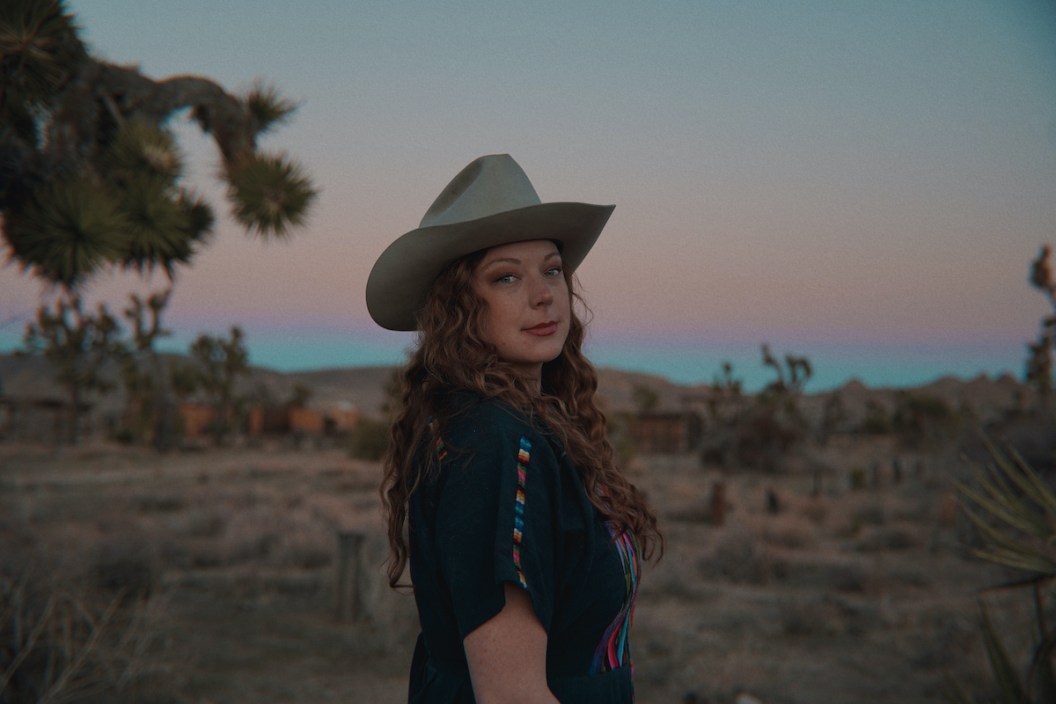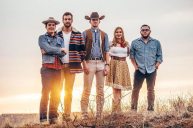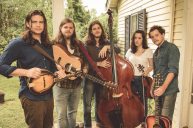In the spirit of Loretta Lynn, ace singer-songwriter Kaitlin Butts tells stories heavily informed by her own experiences yet universal enough for a wide range of listeners to feel seen.
Videos by Wide Open Country
This blend of vulnerability and empathy comes through loud and clear on What Else Can She Do (out April 15), a seven-song collection populated by characters wrestling with infidelity, addiction, generational trauma and other harsh realities of life.
Butts moved to Nashville with her husband, Cleto Cordero of Texas music mainstays Flatland Cavalry, in 2019. When the music business effectively shut down in 2020, the couple relocated to Butts' mom's house in Oklahoma. They returned to Music City in early 2021, where Butts fit right into an always-bustling songwriter scene.
"The week that we moved back here, I immediately within two days was in the studio recording this very album," Butts told Wide Open Country. "It's really nice to go out on the road and go back to Texas and Oklahoma and where we're familiar, but business-wise, it really makes sense for me to be here. And I love it here, too."
Butts created the album with producer Oran Thornton, who's sat in the same chair for Angaleena Presley and Adam Hood. She was accompanied in the studio by Thornton (acoustic guitar), Fred Eltringham (drums), Justin Schiper (pedal steel), Joshua Grange (electric guitar) and Lex Price (bass). Cordero chipped in harmony vocals.
It's Butt's sophomore album, following the 2015 self-release Same Hell, Different Devil. She whet appetites for new music in 2021 with a pair of singles: a tender love song for Cordero titled "How Lucky Am I" and a heavy-hitting version of longtime fan favorite "Marfa Lights."
Butts broke down What Else Can She Do's tracklist with Wide Open Country, sharing the stories behind six originals plus insight into why "In the Pines," an Appalachian folk standard associated with artists ranging from Bill Monroe to Nirvana, works as the album's parting statement.
"It Won't Always Be This Way"
I was experiencing something that I don't feel like is uncommon. My parents were going through a really messy divorce. My mom had finally left my dad, and we kind of went with nowhere to go. Then we moved into my Grandma Jean's garage, and she converted this living space for us. We lived off of my gig money and my Grandma Jean's stew. Then we found this farm house out in Lone Grove, Okla. We had gone from living in Tulsa, Okla., which is very city life, to living in Lone Grove out on a 20-acre farm. That's not something that I would have ever thought would happen, but it did.
It was a good time for my mom and I, but it was also really tough. There were times when we were really unsure about what we were going to do. We felt unsafe at times. We felt betrayed and all the things that come with divorce and being an adult that has to watch your mom go through that. It's definitely a different experience.
We always said this phrase "it won't always be this way" to each other. Things didn't get better for a really long time, and so it became really hard to see the light at the end of the tunnel. So that phrase "it won't always be this way," it was just like, "Things are not getting better, and I don't really know if things are going to change for us."
One night in a parking lot after a show, I started to sing "It Won't Always Be This Way" kind of like a lullaby to myself. Then I just started filling out from there onto the Notes app on my phone.
"Bored If I Don't"
I have a song called "Wild Rose" about a girl that wants to leave home, but she realizes that she wants to grow where her roots are, so she stays with this boy. I started writing "Bored If I Don't," and I was thinking this kind of feels like a sequel to "Wild Rose" and how she might have got married too soon before she really knew what she was signing up for.
"What Else Can She Do"
I kind of pictured the girl from "It Won't Always Be This Way" finally leaving and going to work at a diner. It's kind of this wake up every day, work all day, go home, wake up and do the same thing all over again. That whole monotony. I was trying to keep up with the characters throughout because I feel like I've been each one of them at some point.
"Jackson"
People look at Johnny and June and they see just the love that they had for each other. I imagine at times that it must have been really difficult for June Carter Cash to be in love with such a difficult man, but I don't feel like any of us are strangers to being in love with difficult men.
"Jackson" being the finish line of being in a great relationship, that's how I wanted to symbolize that. Fighting or different disagreements can make you feel like, "I don't think we can make it to the finish line of 'Jackson' and be like Johnny and June."
"She's Using"
I had someone in my life that I love very much that was struggling with substance abuse. It was hard for her and everyone that obviously had to watch her go through it. I think it's human to do things that make us feel good temporarily, right or wrong. Based on her circumstances, I don't really blame her for wanting to escape in whatever way she could.
She disappeared for a really long time, and we didn't see or hear from her for what felt like an eternity. So I wrote this song praying that she'd come home one day. And she did, so it has a good ending.
"Blood"
When I wrote "Blood," I felt like it was [about] a situation that was uncommon. Since releasing the song, I've come to notice [it's not] from messages and comments and people grabbing me by the shoulders after a show and saying, "You have no idea how much I relate to that song. I've been disowned or I could never even speak out about my family, but I feel this all the time." You know, the toxicity or narcissism or just comments that aren't necessary.
I've found that I'm not unique in these situations. All of them, really, are not unique and are more common than we think.
"In the Pines"
I have loved that song for probably the last five, 10 years or so. I have always covered it, and I've always loved the rich history that it has behind it. There's over 200 or 300 versions of it. It's an old, traditional song, and no one knows who actually wrote the original one, which is really cool.
I really fell in love with Leadbelly's original version. You know, the first recorded version. I feel like it ends on the same note that we start on with "It Won't Always Be This Way," which is more haunting and kind of finishes the story for me, in my brain.




